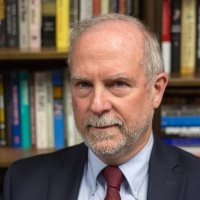The History Manifesto
How should historians speak truth to power - and why does it matter? Why is five hundred years better than five months or five years as a planning horizon? And why is history - especially long-term history - so essential to understanding the multiple pasts which gave rise to our conflicted present? The History Manifesto is a call to arms to historians and everyone interested in the role of history in contemporary society. Authors David Armitage and Jo Guldi identify a recent shift back to longer-term narratives, following many decades of increasing specialization, which they argue is vital for the future of historical scholarship and how it is communicated. This provocative and thoughtful book makes an important intervention in the debate about the role of history and the humanities in a digital age. It will provoke discussion among policymakers, activists and entrepreneurs as well as ordinary listeners, viewers, readers, students and teachers.
Joining Guldi and Armitage will discuss their book, and then a panel of leading historians will address its implications on the field.
Jo Guldi is Hans Rothfels Assistant Professor of History, Brown University. She is the author of Roads to Power: Britain Invents the Infrastructure State and What is the Spatial Turn? (2012) published by Harvard. Guldi received her PhD in History at the University of California, Berkeley.
David Armitage is the Lloyd C. Blankfein Professor of History and Chair of the Department of History at Harvard University. He is the author or editor of thirteen books, including The Ideological Origins of the British Empire (2000), The Declaration of Independence: A Global History (2009), and Foundations of Modern International Thought (2013).
Eric Arnesen is the James R. Hoffa Professor of Modern American Labor History and Executive Associate Dean for Faculty Affairs in the George Washington University’s Columbian College of Arts and Sciences, and the co-chair of the Washington History Seminar.
J.R. McNeill is Professor at Georgetown University and an expert on international environmental history. He has held two Fulbright awards, fellowships from Guggenheim MacArthur, and the Woodrow Wilson Center. His books include Something New Under the Sun (2000), winner of two prizes, listed by the London Times among the 10 best science books ever written (despite not being a science book), and translated into 9 languages; The Human Web (2003), translated into 7 languages; and Mosquito Empires (2010), which won the Beveridge Prize from the AHA and was listed by the Wall Street Journal among the best books in early American history. In 2010 he was awarded the Toynbee Prize for ‘academic and public contributions to humanity.’
Rosemarie Zagarri is University Professor at George Mason University, specializing in Early American history. She is the author of Revolutionary Backlash: Women and Politics in the Early American Republic (2008) and A Woman’s Dilemma: Mercy Otis Warren and the American Revolution (2015).
The Washington History Seminar is sponsored jointly by the National History Center of the American Historical Association and the Wilson Center's History and Public Policy Program. It meets weekly during the academic year. See www.wilsoncenter.org/collection/washington-history-seminar for the schedule, speakers, topics, and dates as well as webcasts and podcasts. The seminar thanks the Society for Historians of American Foreign Relations and the George Washington University History Department for their support.
Speakers

Professor of History, The George Washington University. Director, National History Center of the American Historical Association.


Hosted By

History and Public Policy Program
A leader in making key foreign policy records accessible and fostering informed scholarship, analysis, and discussion on international affairs, past and present. Read more
